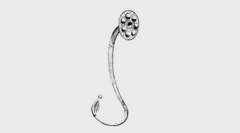Keywords
alcohol, immigrant society, religion, personal freedom
Abstract
On January 17, 1920, a major change took place in American society. The Eighteenth Amendment went into effect and started the Prohibition Era, banning the sale of alcohol in the United States from 1920 to 1933. Prohibition was not a uniquely American idea. Under pressure from temperance movements, most Nordic countries banned or severely restricted the sale of alcohol around the same time as the United States did. The Faroe Islands, Iceland, Norway, and Finland all banned alcohol during the first few decades of the twentieth century. Although a narrow majority of the Swedish people refused an outright ban in a referendum in 1922, the Swedish government instigated a state monopoly on alcohol. The only Scandinavian exception was Denmark—almost. A brief ban went into effect on February 27, 1917, but it was very short-lived. Instead, the tax on alcohol was increased so severely that consumption fell significantly.
Recommended Citation
Mogensen, Nick Kofod
(2016)
"Prohibition Among Danish American Lutherans,"
The Bridge: Vol. 39:
No.
2, Article 7.
Available at:
https://scholarsarchive.byu.edu/thebridge/vol39/iss2/7
Included in
European History Commons, European Languages and Societies Commons, Regional Sociology Commons


